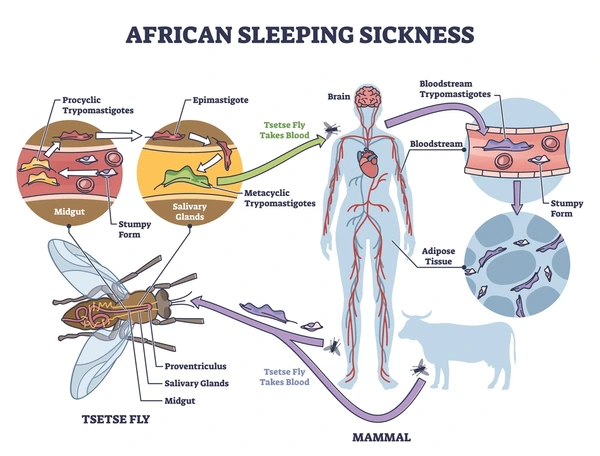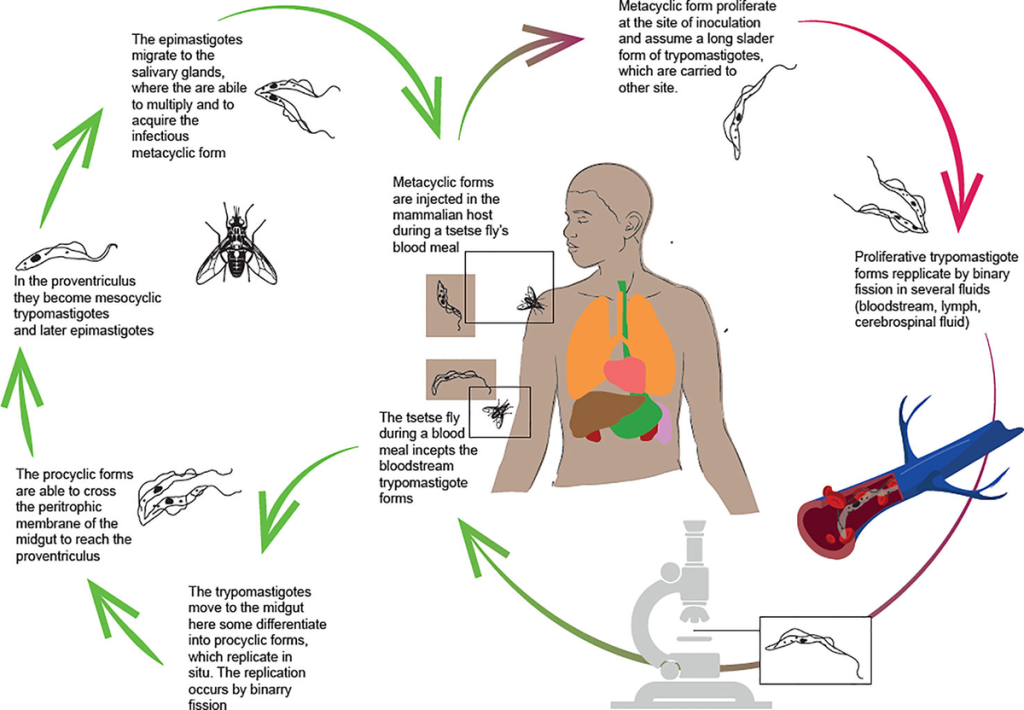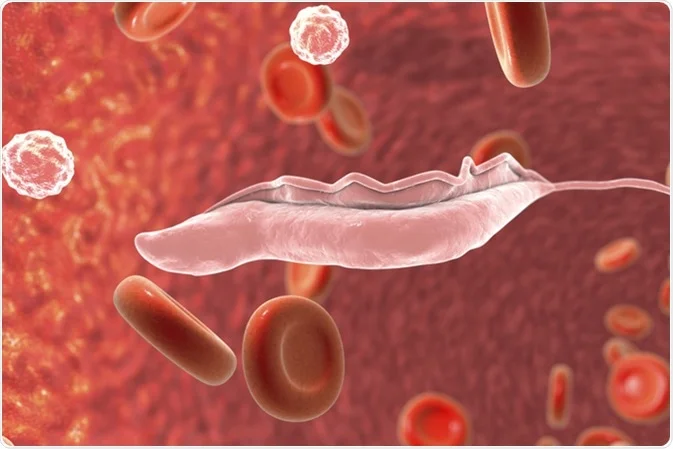What is African Trypanosomiasis (Sleeping Sickness)?
African Trypanosomiasis, also known as Sleeping Sickness, is a parasitic disease caused by the Trypanosoma brucei parasite. It is transmitted through the bite of an infected tsetse fly and primarily affects people in sub-Saharan Africa. If left untreated, the disease can progress to severe neurological symptoms and can be fatal.
There are two types of African Trypanosomiasis:
✔ Trypanosoma brucei gambiense (T.b. gambiense) – Causes chronic infections, common in West and Central Africa.
✔ Trypanosoma brucei rhodesiense (T.b. rhodesiense) – Causes acute infections, found in East and Southern Africa.

What Causes African Trypanosomiasis?
The disease is caused by the Trypanosoma brucei parasite, which is transmitted by:
✔ Tsetse Fly Bites – The main mode of transmission occurs when an infected tsetse fly bites a human.
✔ Blood Transfusion or Organ Transplant – Rare cases of infection through contaminated blood or organs.
✔ Mother-to-Child Transmission – The parasite can pass from an infected mother to her unborn baby.
Who is at Risk for Sleeping Sickness?
✔ People living in or traveling to rural areas of sub-Saharan Africa.
✔ Farmers, hunters, and outdoor workers exposed to tsetse fly bites.
✔ Individuals with prolonged exposure to infected areas.
What Are the Symptoms of African Trypanosomiasis?
Symptoms vary depending on the stage of infection and the type of parasite involved.
1. Early Stage (Hemolymphatic Phase)
✔ Fever and Chills – Occurs within 1-3 weeks of infection.
✔ Headache and Muscle Aches – Persistent body pain.
✔ Swollen Lymph Nodes – Especially at the back of the neck (Winterbottom’s sign in T.b. gambiense).
✔ Skin Rash or Itching – May appear at the bite site.
✔ Fatigue and Weakness – Due to systemic infection.
2. Late Stage (Neurological Phase)
✔ Severe Sleep Disturbances – Reversal of sleep-wake cycles (excessive daytime sleepiness, nighttime insomnia).
✔ Confusion and Personality Changes – Irritability, mood swings, and altered behavior.
✔ Poor Coordination and Muscle Weakness – Difficulty walking or moving normally.
✔ Seizures and Tremors – In some cases.
✔ Coma and Death – If untreated, the disease is almost always fatal.

How is African Trypanosomiasis Diagnosed?
✔ Blood Tests – Detects the Trypanosoma parasite in the bloodstream.
✔ Lymph Node Aspiration – Examines swollen lymph nodes for the parasite.
✔ Spinal Tap (Lumbar Puncture) – Determines if the parasite has reached the brain (late-stage infection).
✔ Serologic Testing (for T.b. gambiense) – Detects antibodies in the blood.
What Are the Treatment Options for Sleeping Sickness?
Treatment depends on the stage of the disease and the type of parasite.
1. Early-Stage Treatment (Before Brain Involvement)
✔ Pentamidine – Used for T.b. gambiense infections.
✔ Suramin – Used for T.b. rhodesiense infections.
2. Late-Stage Treatment (Neurological Involvement)
✔ Melarsoprol – Effective for both types, but highly toxic.
✔ Eflornithine (DFMO) – Preferred for T.b. gambiense, less toxic than Melarsoprol.
✔ Combination Therapy (NECT) – Eflornithine + Nifurtimox, used for advanced T.b. gambiense cases.

What is the Prognosis for African Trypanosomiasis?
✔ If treated early, the disease is curable with a good prognosis.
✔ If left untreated, it is almost always fatal due to brain damage.
✔ Relapses can occur, requiring follow-up care after treatment.
Can African Trypanosomiasis Be Prevented?
✔ Avoid Tsetse Fly Bites – Wear long clothing, use insect repellent, and avoid infested areas.
✔ Screening Programs – Regular screening in endemic areas can help detect and treat cases early.
✔ No Vaccine Available – Research is ongoing, but currently, there is no vaccine for sleeping sickness.


